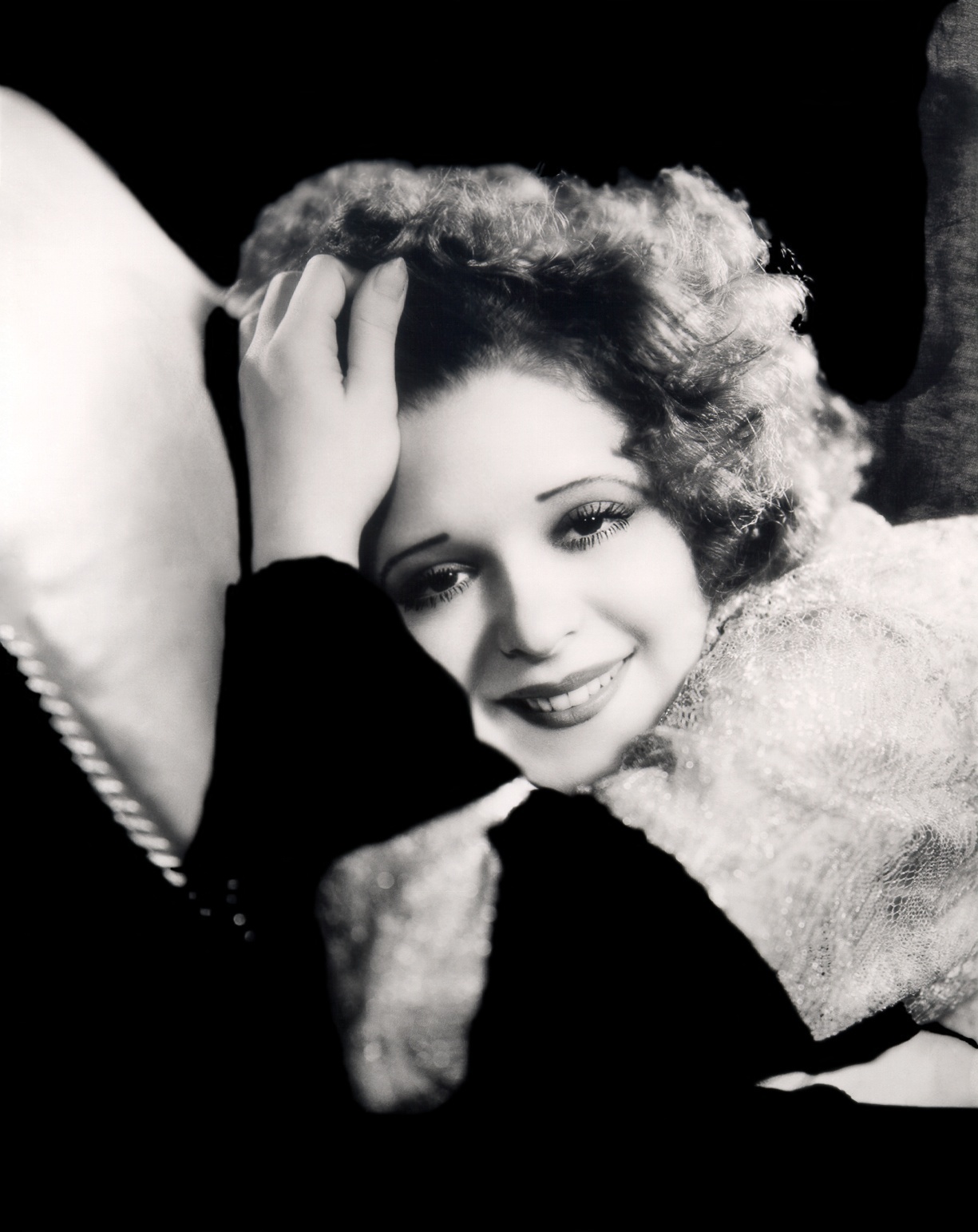Clara Bow was once asked to share her thoughts on Marilyn Monroe's death.
"A sex symbol," Bow said, " is a heavy load to carry when one is tired, hurt and bewildered."
Bow, born July 29, 1905, knew what she was talking about. Four decades before Monroe sang 'Happy Birthday" for President Kennedy, Bow was blazing the trail for actresses like Monroe to follow.
At the height of Bow's immense popularity she received 45,000 fan letters in a month, and starred in such blockbuster hits as "The Plastic Age" (1925), "Mantrap" (1926), and "Wings" (1927). She was the movie game’s top draw in 1927 and ‘28, and for a time was Hollywood's leading money earner, receiving $35,000 per week.
 Confident in her talent after winning a magazine contest for her looks and acting, Bow began approaching New York movie studios at age 16. She was soon landing small roles and making an impression with every screen appearance. A track runner and star athlete in high school, Bow often found herself cast as tomboys. But when the 1920s "Flapper" craze hit, Bow found her niche. She became the embodiment of working class girls everywhere who wanted to strike out on their own, shorten their skirts, and have some fun!
Confident in her talent after winning a magazine contest for her looks and acting, Bow began approaching New York movie studios at age 16. She was soon landing small roles and making an impression with every screen appearance. A track runner and star athlete in high school, Bow often found herself cast as tomboys. But when the 1920s "Flapper" craze hit, Bow found her niche. She became the embodiment of working class girls everywhere who wanted to strike out on their own, shorten their skirts, and have some fun!
After starring in "It" (1927), another smash hit, Bow became known as Hollywood's "It girl." When a reporter asked her what "it" meant, she responded in her thick Brooklyn accent, "I aint real sure."
As far as Bow was concerned, life was best taken at high speeds with the top down. She purchased red Chow dogs to match her hair color, and created a trend with her way of applying red lipstick in the shape of a heart. Her personal life made as many headlines as her box office totals, for she wasn’t shy about her off screen romances with the likes of Gary Cooper and Gilbert Roland. When reporters goaded her about her love life, she disarmed them with witty one liners. “The more I see of men,” she said, “the more I like dogs.”
Bow was also years ahead of her time in the way she spoke in interviews. While most performers were carefully guided by publicity agents in those days, Bow’s tendency was to let it rip, sharing hair raising stories about a childhood spent in poverty, and a mother who was mentally unstable and sometimes violent. Many found Bow’s forthrightness to be vulgar, but she preferred to tell the truth than to hide behind a manufactured image.
Historians have occasionally dismissed Bow as just another actress whose career ended with the advent of sound. In actuality, although she struggled to embrace sound technology, her talkies were successful. When it came to putting customers in the seats, Bow towered over her contemporaries.
Unfortunately, Bow’s final years were difficult. She'd retired from movies at 25, troubled by mental exhaustion, and increasingly scandalous articles about her sex life. She tried to focus on her marriage to cowboy star Rex Bell, but was often under extreme psychiatric care. By the time of her death in 1965 at age 60, Bow was a reclusive and forgotten figure.
 Bow’s unhappy ending was a kind of bookend, matching the sadness of her early life. But those miserable childhood years lead her to find solace and escape the way many of us do - at the movies.
Bow’s unhappy ending was a kind of bookend, matching the sadness of her early life. But those miserable childhood years lead her to find solace and escape the way many of us do - at the movies.
"For the first time in my life," Bow said of an early movie going experience, "I knew there was beauty in the world."
On the occasion of her birthday, let's remember Clara Bow as a major star of her time. She had her own heavy load, and was probably bewildered by her popularity, but the Roaring Twenties wouldn't have roared so loudly without her.

No comments:
Post a Comment